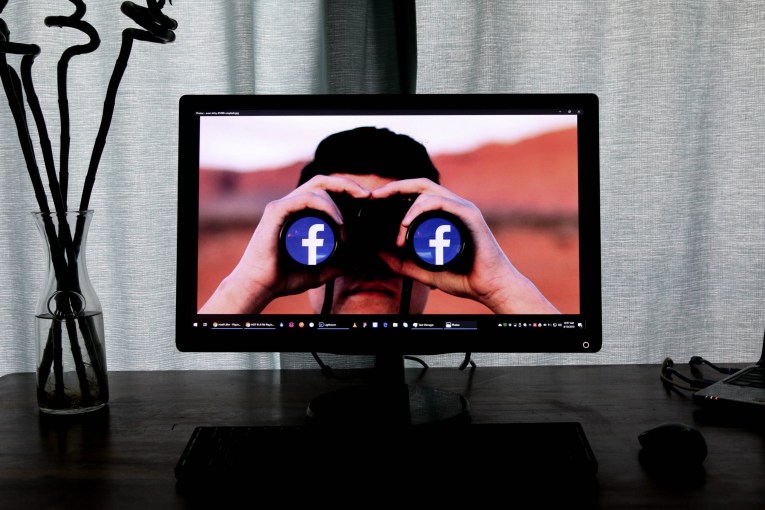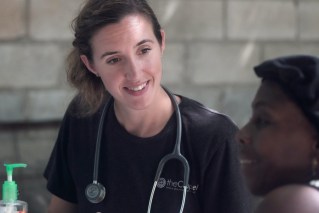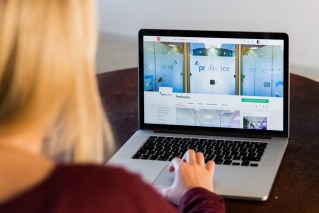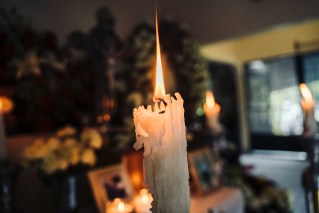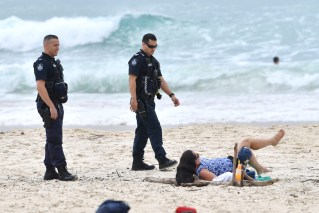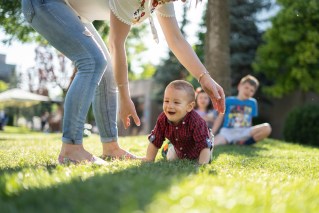Keeping an invisible, deadly invader from crossing the thin blue line
Each day this month, we will publish Tales of 2020, the stories of ordinary Queenslanders enduring an extraordinary year. Today, policeman “John Doe” reflects on the unique challenges the pandemic created for our boys in blue.
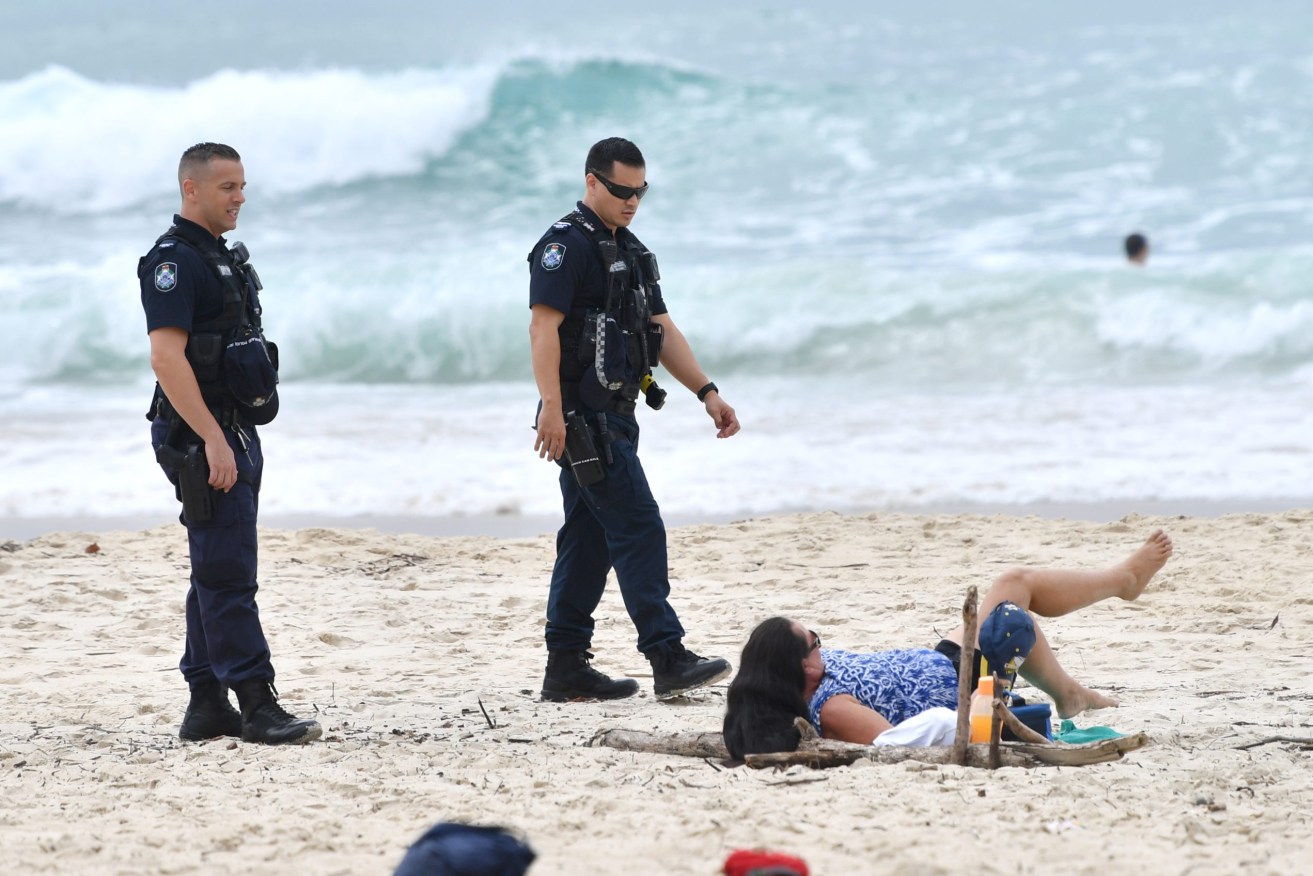
Queensl (AAP Image/Darren England)
When the sobering seriousness of COVID-19 came to the attention of the Queensland Government, a public health emergency was declared. Legislation was enacted that meant police officers like me would become agents under the Public Health Act.
It made sense given the legislative powers already afforded to us, coupled with our investigative experience.
However, managing a public health emergency isn’t quite the same as managing crime or some other incident where there is an obvious and immediate risk of physical harm to members of the public.
There were always going to be teething issues. My memory draws back to the infringements that were issued to people who were making trips to the dump. I personally wasn’t involved in issuing those tickets, but this highlights the slight ambiguity in the interpretation of the terms “essential purpose” or “essential travel”.
As anyone who is familiar with this story will recall, the infringements were withdrawn, and guidance was fortunately given on the issue.
This was a new and unfolding occurrence. Judicial opinion was being explored regarding the application of the laws, and there wasn’t a whole lot of precedent to refer to.
This caused a degree of uncertainty to me and my colleagues who usually like to be sure about what we do. This uncertainty was exacerbated by the changeable rules as restrictions increased and subsequently decreased.
We were expected to know the rules back to front as soon as the changes came into effect as well as performing all of our other regular duties.
The majority of officers who are called to deal with these breaches are all front-line officers who are already responding to all the other emergencies normally expected of police. This extra responsibility was basically dumped on us without much in the way of additional resources.
Along with these new legislative powers came the increase in associated jobs which included reports of unauthorised gatherings in parks, house parties, or public spaces where social distancing was being ignored.
I must admit, at times I felt a little silly turning up to some fast-food joint to check if all the Uber Eats drivers were suitably spaced apart whilst they were waiting for their clients’ orders.
I must also admit that there were times where I felt rather irritated when I would attend a park to find a large group of people playing twenty a side soccer when the rest of the public were staying home trying to do their bit to reduce transmission of COVID.
With all that said, I think I speak for a large portion of my colleagues when I say that the people that were issued infringements were usually ones who had already been repeatedly warned, or who were doing some other associated criminal act at the time.
In Australian culture, we don’t like it when someone shirks the rules that everyone else has to follow. I think this has worked to encourage us to comply with restrictions. I think this is one reason why members of the public were willing to report breaches of the restrictions.
With that said, I remember one particular job I got called to where it was reported that a house party was taking place and the owner had exceeded the maximum number of guests. By the job description, it sounded like a rave party was occurring with alcohol freely flowing.
When I arrived, I found the house quiet. I spoke with the homeowner and found out that this “rave” was in fact his son’s first birthday. The owner had his brother, sister-in-law, and his mother over to celebrate the child’s birthday.
Strictly speaking, this exceeded the maximum number of guests allowed at that time, which was up to two people that weren’t from the household. I won’t detail how I dealt with the matter, but I am fairly confident that the homeowner was happy with the outcome
I tend to opt for a more compassionate approach when it comes to breaches of the restrictions, which is the approach suggested by the police service, and I think the majority of my colleagues.
However, I recall numerous media reports detailing instances of police issuing fines for menial infractions and the subsequent outrage expressed by some groups of the public.
Initially, I felt indignant that the media were not portraying the context of the police interactions appropriately or failing to mention that the person receiving the fine was doing some other criminal act at the time. Most of my colleagues were compassionate to people who were unmaliciously breaching the restrictions.
It was actually helpful to give the perception that people who breached restrictions were at risk of being fined as it improved compliance. It can be a bit of a balance to uphold public order without being tyrannical. After all, some of these people may be going through recent job loss, loss of a loved one, or any number of bereavements.
I remember it was mentioned that about eighty percent compliance was required in order to effectively reduce transmission of COVID. From what I observed on the street, I think we achieved that. I also think that is one of the reasons why the statistics in Queensland have been so promising…
Then the protests happened in June 2020, thousands of people all in close proximity with the permission of the government. I don’t know what to make of that, but issuing any infringement now, even while some restrictions are still in place, would just feel like hypocrisy.
I can’t help but feel that the efforts carried out by me, my colleagues, health workers, and members of the public were damaged as a result.
I suppose the one thing I haven’t addressed in this reflection is the personal impact this whole situation has had on me. Funnily enough, the social restrictions haven’t impacted on my routine too much, nor has it done so to many of my colleagues. As police, we already tend to socially withdraw and become wary of strangers in close proximity.
At work, it’s a different story. Someone calls for police in an emergency and we have to go in. We don’t get a choice.
I lose count of the number of houses I go into every day, and the number of close interactions with people I have, all the time wondering if I’m going to bring something home to my family, or even some other person to whose house I have been called.
There has also been a certain percentage of our usual clientele that have used this pandemic for their own ends. Sometimes they will deliberately cough in your direction and claim to be ill in order to upset you or thinking that they might be able to avoid arrest for something else they’ve done.
The pandemic has yielded additional challenges for police from the changeable enforcement of restrictions, increased workload, and general anxiety of transmission of COVID. All in all, we’ve been through worse as a country and we will get through this too.
“John Doe” is a police officer who is married with two young children and another on the way.
This article was first published in Stories from the Heart, an e-book edited by Dr Johanna Skinner and editor Jane Connolly, and is republished with their permission.
